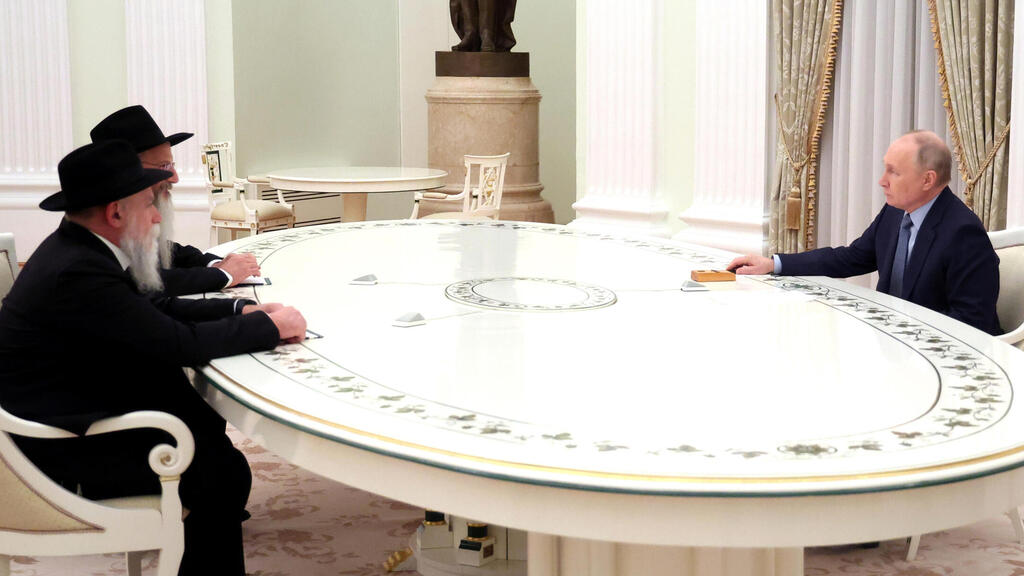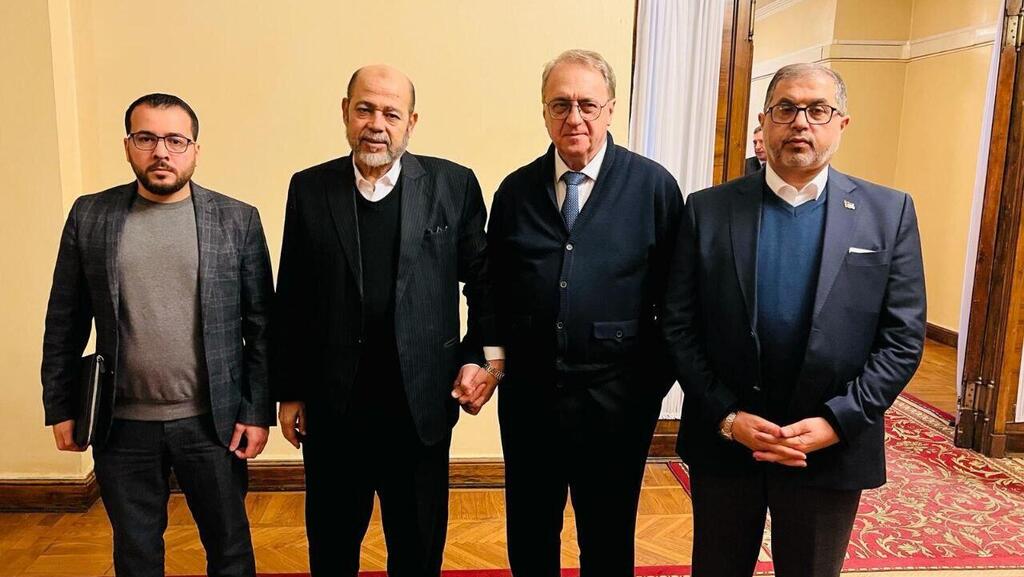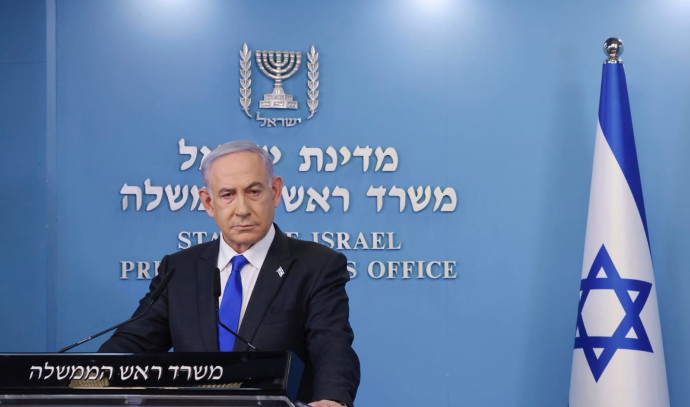valerii zaluzhnyi – Google Search https://t.co/ZWDU45iZCW
— Michael Novakhov (@mikenov) February 8, 2024
Day: February 8, 2024
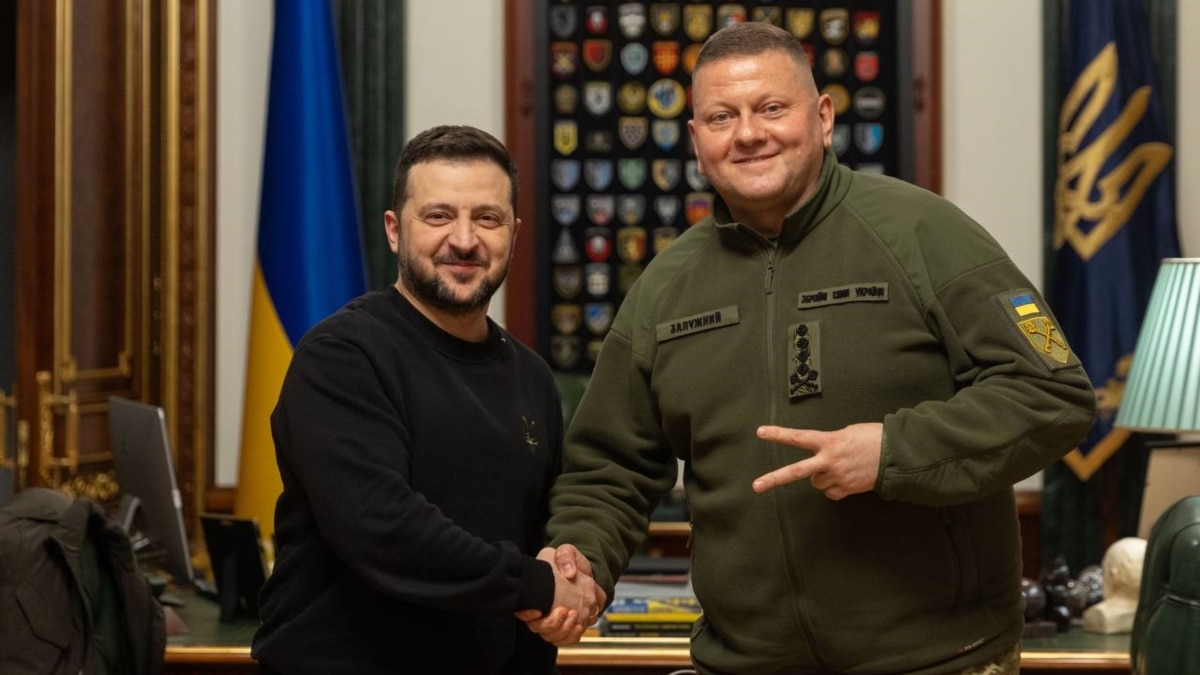
Владимир Зеленский отправил в отставку главкома ВСУ Валерия Залужного. Новым главнокомандующим Вооруженных сил Украины назначен командующий Сухопутными войсками генерал-полковник Александр Сырский. Об этом президент Украины написал в своем телеграм-канале.
“Встретился с генералом Валерием Залужным. Поблагодарил за два года защиты Украины. Обсудили, в каком обновлении нуждаются Вооруженные силы Украины. Обсудили также, кто может находиться в обновленном руководстве Вооруженных сил Украины. Время для такого обновления – именно сейчас. Предложил Валерию Федоровичу и дальше быть в команде”, – написал Зеленский.
Он также отметил, что сегодня к руководству Вооруженными силами Украины приступает новая управленческая команда.
“Я хочу, чтобы видение войны было единым и у наших воинов в Работино или Авдеевке, и в Генеральном штабе и Ставке. Я провел десятки разговоров с командирами разного уровня. В частности, сегодня говорил с бригадными генералами Андреем Гнатовым, Михаилом Драпатым, Игорем Скибюком и полковниками Павлом Палисой и Вадимом Сухаревским. Все они рассматриваются на руководящие должности в армии и будут служить под руководством наиболее опытного украинского командующего. У него есть успешный опыт защиты – провел Киевскую оборонную операцию. Он также имеет успешный опыт наступления – Харьковской освободительной операции. Я назначил генерал-полковника Сырского главнокомандующим Вооруженными силами Украины”, – сказал Зеленский.
Залужный, в свою очередь, отметил, что провел с президентом Украины “серьезный и важный разговор”.
“Задания 2022 года отличаются от задач 2024 года. Поэтому все должны измениться и адаптироваться к новым реалиям. Чтобы победить тоже вместе. Принято решение о необходимости изменения подходов и стратегии”, – подчеркнул Залужный.
В комментарии “Суспільне” глава Минобороны Украины Рустем Умеров заявил, что “сегодня одобрили решение сменить руководство ВСУ”.
“Война не остается одинаковой. Война меняется и требует перемен. Боевые действия 2022-го, 2023-го и 2024-го – это три разных реальности. 2024 год принесет новые изменения, к которым должны быть готовы. Нужны новые подходы, новые стратегии. Сегодня было принято решение о необходимости смены руководства Вооруженных сил Украины. Искренне благодарен Валерию Федоровичу [Залужному] за все достижения и победы”, – написал Умеров в своем фейсбуке.
Александр Сырский – уроженец России, в Украине живет с 1980 года. Первое военное образование получил в Московском высшем общевойсковом командном училище. Затем окончил Академию Вооруженных сил Украины и Национальную академию обороны Украины. Командовал Сухопутными войсками ВСУ с 2019 года. В феврале 2022 года Сырский руководил обороной Киева, за что впоследствии ему было присвоено звание Героя Украины.
залужный – Google Search https://t.co/5y1yCaGfMA – https://t.co/BrCCiCMKRV – https://t.co/aNxJkzHDUE
— Michael Novakhov (@mikenov) February 8, 2024
Putin and Israeli Hostages: I took them, and I will give them back! My honest BEARDED word!
–
Путин: Я их взял, Я их и отдам! Моё честное бородатое слово!https://t.co/JAv0eUTBgt#Россия #Путин pic.twitter.com/M8dYaZFFbn— Michael Novakhov (@mikenov) February 8, 2024
–


Published on Feb 08, 2024 02:14 PM IST
Russian President Vladimir Putin said that Moscow is working on freeing hostages held in captivity by Hamas in Gaza. Putin said this after meeting Russia’s chief rabbi, Berel Lazar, and the head of the Federation of Jewish Communities, Alexander Boroda, in the Kremlin. Putin claimed that Moscow had achieved “specific results” in its diplomatic efforts using its contacts within Hamas’s political wing. Watch this video to know more. #putin #hamas #hostages #moscow #kremlin #vladimirputin #russia #hostagedeal #jews #jewishcommunity #rabbi #berellazar #alexanderboroda #hamasleadership #israel #us #hostagerelease #palestine #twostatesolution #antonyblinken #mahmoudabbas
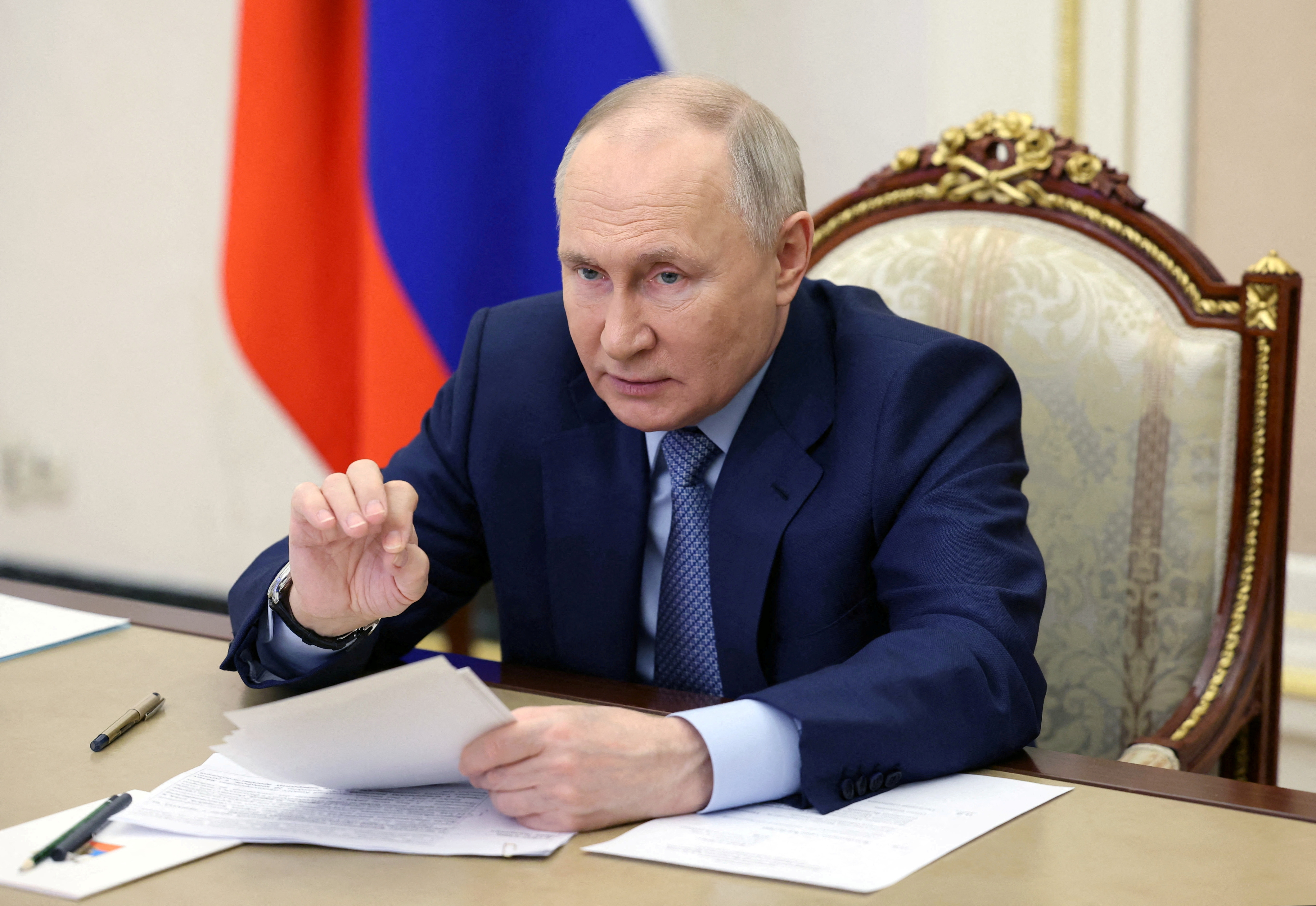
The agencies said Putin made the comments at a meeting with Russia’s chief rabbi, Berl Lazar, and the head of the Federation of Jewish Communities, Alexander Boroda. Putin said Russia had made use of its contacts with the political wing of Hamas.
“You know, since the situation became more tense in the Middle East, Russia has been doing everything to help people who became hostages,” Putin was quoted as saying.
“As is known, our Foreign Ministry worked through the political wing of Hamas and, on the whole, there have been specific results.”
Putin did not elaborate, according to the reported comments.
Moscow’s efforts, though directed at helping Russian nationals, also sought to help others, the president said.
“They include elderly people and their family members who survived the Holocaust,” he was quoted as saying.
“But I know, I understand, that it is vital to carry on with these efforts. And that is what we are doing.”
Moscow also has said the violence in the Middle East is a reflection of U.S. policy failures in the region.
Putin’s reference to Holocaust survivors comes a day after Russia’s foreign ministry told the Israeli ambassador, Simona Halperin, of its “negative reaction” to her criticisms of Foreign Minister Sergei Lavrov and Russian policy.
Authorities criticised her “unacceptable comments” in an interview with Russian newspaper Kommersant in which she said Lavrov had played down the importance of the Holocaust and that Russia was too friendly with Hamas.
Reporting by Ron Popeski Editing by Bill Berkrot
Our Standards: The Thomson Reuters Trust Principles., opens new tab

Even if the prime minister and defense minister aim to weaken Hamas’ standing in the negotiation, their endless talk about Hamas leaders’ assassination seems to have replaced actions
Feb 7, 2024 4:56 pm IST
Get email notification for articles from Ravit Hecht Follow
Feb 7, 2024 4:56 pm IST
Once, not that long ago, when this country was not as disordered and broken as it is today, politicians would take credit for military actions and assassinations, only in retrospect, once they had actually happened.
President Vladimir Putin told leaders of Russia’s Jewish community on Wednesday that Moscow had achieved “specific results” in diplomatic efforts to free hostages caught up in Israel’s conflict with Hamas, Russian news agencies reported.
The agencies said Putin made the comments at a meeting with Russia’s chief rabbi, Berl Lazar, and the head of the Federation of Jewish Communities, Alexander Boroda. Putin said Russia had made use of its contacts with the political wing of Hamas.
Russian President Vladimir Putin, right, speaks to Chief Rabbi of Russia, Berel Lazar, second left, and President of the Federation of Jewish Communities Alexander Boroda at the Kremlin
(Photo: Sergei Fadeichev / Sputnik / via AP)
“You know, since the situation became more tense in the Middle East, Russia has been doing everything to help people who became hostages,” Putin was quoted as saying. “As is known, our Foreign Ministry worked through the political
Senior members of the Hamas terror group visit Moscow as guest of the Russian Foreign Ministry last month
wing of Hamas and, on the whole, there have been specific results.” Putin did not elaborate, according to the reported comments.
Moscow’s efforts, though directed at helping Russian nationals, also sought to help others, the president said. “They include elderly people and their family members who survived the Holocaust,” he was quoted as saying. “But I know, I understand, that it is vital to carry on with these efforts. And that is what we are doing.”
Russia, which has drawn closer to Israel’s arch-rival Iran since the outbreak of the nearly two-year-old Ukraine conflict, has restated its support for Palestinian statehood, and criticiזed Israeli military action in the Gaza Strip and has said the violence in the Middle East is a reflection of U.S. policy failures in the region.
Authorities criticiזed her “unacceptable comments” in an interview with Russian newspaper Kommersant in which she said Lavrov had played down the importance of the Holocaust and that Russia was too friendly with Hamas.
Israel won’t accept Hamas’s latest terms for a hostage deal, Prime Minister Benjamin Netanyahu told reporters on Wednesday but he did not rule out continued negotiations for an acceptable agreement to secure the release of the remaining 136 hostages held in the enclave
“From what I saw, even you would say no” to Hamas’s offer, Netanyahu told the reporter who quizzed him on the proposal. It included a demand for a permanent ceasefire, an IDF withdrawal from Gaza. and the release of terrorists jailed for killing Israelis.
“Surrendering to the delusional demands of Hamas ..will not lead to the release of the hostages. It will only invite another massacre,” Netanyahu said, referencing the October 7 attack against southern Israel in which over 1,200 people were killed and another 253 were seized as hostages.
“I would like to emphasize again – there is no other solution than total victory. If Hamas survives in Gaza, it is only a matter of time until the next massacre,” Netanyahu stressed.
“The evil axis of Iran and its affiliates will continue unhindered its campaign of killing and aggression,” Netanyahu explained.
“We have no obligation to the crazy terms Hamas is talking about.. including the part about [releasing terrorists] with “blood on their hands,” Netanyahu said, stressing that “we have not committed” to that.
There is supposed to now be “a process of negotiation through mediators but from what I have seen, Hamas is not there.”
Advertisement
Defense Minister Yoav Gallant issued a press statement explaining that “Hamas’ answer was formulated so that Israel would refuse it.
“Its position will lead to the continuation of the war, and send our forces to other places in Gaza, soon,” he said, as he hinted at a military operation in Rafah by the Egyptian border.
Still, Hamas official Osama Hamdan said in a press conference on Wednesday that it was sending a delegation headed by Hamas official Khalil Al-Hayya to Cairo Thursday to pursue ceasefire talks with Egypt and Qatar.
Hamas: Netanyahu comments are form of ‘political bravado’
Another Hamas official Sami Abu Zuhri told Reuters that “Netanyahu’s comments are a form of political bravado, indicating his intention to pursue the conflict in the region,” Abu Zuhri said. “The movement (Hamas) is prepared to deal with all options.”
US Secretary of State Antony Blinken who is in Israel as part of his whirlwind Middle East tour to advance a hostage agreement and a normalization deal between Israel and Saudi Arabia put a more optimistic spin on the situation.
He told President Isaac Herzog that the US and Israel were looking “intensely” at Hamas’s response.
“There’s a lot of work to be done, but we are very much focused on doing that work and hopefully, being able to resume the release of hostages that was interrupted so many months ago.”
Blinken has hoped that a prolonged pause to the war would lead to a ceasefire. At the Jerusalem press conference on Wednesday night, Netanyahu stressed, that Israel’s military campaign to oust Hamas from the enclave must continue.
“The continuation of military pressure is a necessary condition for the release of the hostages,” Netanyahu said as he stressed that victory was within his grasp.
The Israeli and American officials spoke out one day after Hamas issued its counterproposal to a US-Israeli framework understanding by which to free the hostages.
Hamas’s insistence on a prolonged pause to the war of 135 days, a permanent ceasefire, and a complete IDF withdrawal from the enclave, doused optimism that the release of the captives was around the corner.
It pointed to the complexity of what is likely to be a protracted process.
Hamas called for a three phased process in exchange for a permanent ceasefire, according to a document seen by Reuters
During the first 45-day phase, all Israeli female hostages, males under 19 and the elderly and sick would be released. In exchange Palestinian women and minors held in Israeli jails on security-related charges would be freed and the IDF would withdraw from populated areas in Gaza.
Implementation of the second phase would not begin until the sides conclude “indirect talks over the requirements needed to end the mutual military operations and return to complete calm.”
The second phase would include the release of remaining male hostages and full Israeli withdrawal from all of Gaza. Bodies and remains would be exchanged during the third phase.
A source close to the negotiations said the Hamas counterproposal did not require a guarantee of a permanent ceasefire at the outset, but that an end to the war would have to be agreed upon during the truce before final hostages were freed.
A second source said Hamas still wanted guarantees from Qatar, Egypt, and other friendly states that the ceasefire would be upheld and not collapse as soon as the hostages were freed.
“They want the aggression to stop and not temporarily, not where (the Israelis) take the hostages and then the Palestinian people live in a grinder.”
Hamas’s proposal – a response to an offer sent last week by Qatari and Egyptian mediators and cleared by Israel and the United States – came during the biggest diplomatic push yet for an extended halt to the fighting.
Hamas has asserted that Israel’s military campaign to destroy it has caused over 27,000 fatalities in Gaza. Israel has claimed that over 9,000 of them are combatants.
A temporary week-long truce in November saw the release of 105 hostages in exchange for the release of some 240 Palestinian security prisoners in Israeli jails. Another five hostages were freed separately and the bodies of 11 captives were returned to Israel.
Earlier in the day, Blinken met with Netanyahu for what the Prime Minister’s Office described as a “lengthy private” meeting.
They were joined for an expanded meeting with US and Israeli officials, including Defense Minister Yoav Gallant, Strategic Affairs Minister Ron Dermer, Mossad Chief David Barnea, and IDF Chief-of-Staff Herzl Halevi. Blinken also met separately with Gallant.
Six women who were kidnapped to Gaza in October and were released in November ceasefire held a press conference right after Netanyahu, in which they pled with him to accept Hamas’ terms.
Adina Moshe, 72, from Nir Oz said, as if she was addressing Netanyahu, ”If you continue in this line of destroying Hamas, there will be no hostages left to save.” It’s presumed that 31 of the hostages held in Gaza are dead, and relatives of the captives fear that more will die if there is a protracted negotiation process.
Sharon Aloni-Kunyo, 34, from kibbutz Nir Oz, who was released with her two three-year-old daughters, Yuli and Emma, from captivity, is still waiting for her husband, David, to return.
She said, “136 hostages are waiting without oxygen, food, or hope to be saved,” adding, “The price is high, but abandoning the hostages is a historical stain.”
Reuters and Jerusalem Post Staff contributed to this report.
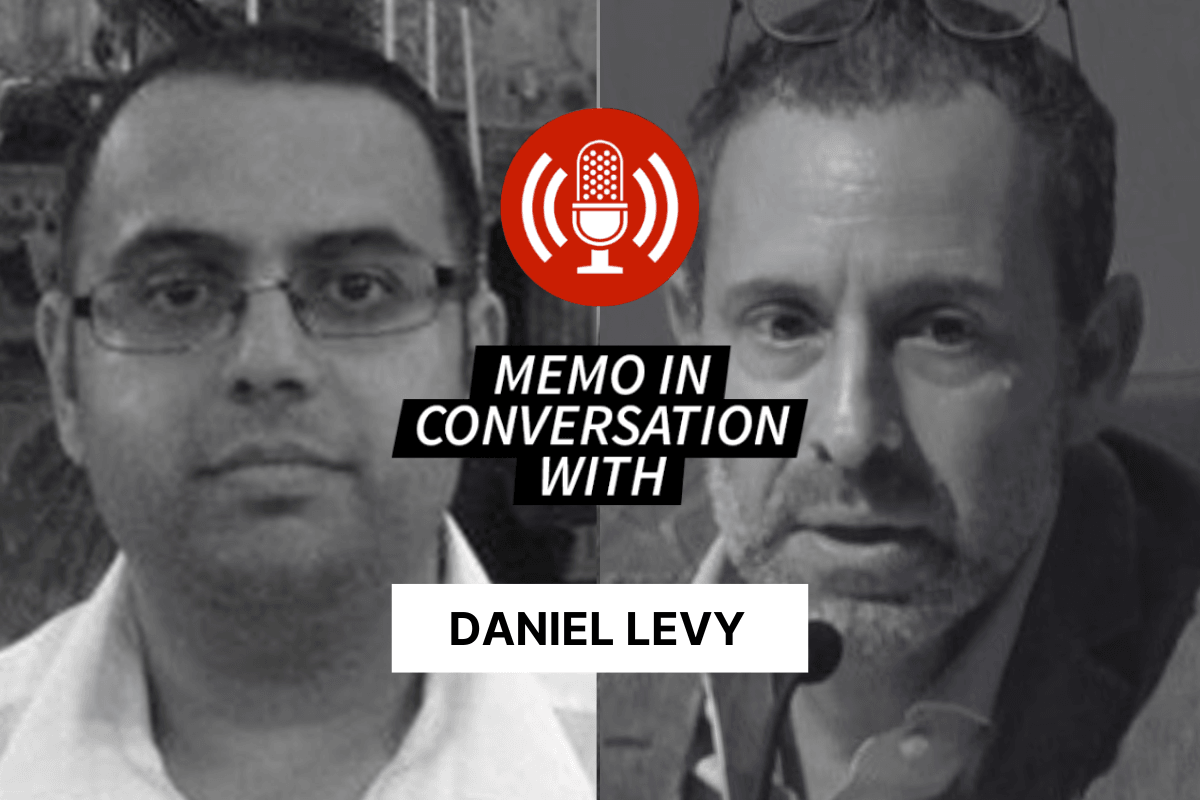
On 6 October 2023, Israeli leaders were feeling confident of their international standing. Normalisation with the UAE, Bahrain, Morocco, Sudan and talks in the air about impending normalisation with Saudi Arabia. The Palestinian issue seemed forgotten, the status quo allowed Tel Aviv to close Gaza off from the world, settlers to steal more land in the occupied West Bank and everyone seemed to have given up on the idea of a Palestinian state. On 7 October, Israel’s sense of invincibility and security with the status quo came crashing down. But despite the political disaster of the Hamas attack, some within the Israeli government saw it as an opportunity to expel and ethnically cleanse Gaza of Palestinians, believing they would have immunity. However, the ongoing atrocities playing out in full view of the world, with growing anger in the West, outrage in the international community and a genocide case in the International Court of Justice (ICJ) indicate that Israel has lost a lot of its international legitimacy. Additionally, with talks of a ceasefire and the failure of the Israeli occupation army to crush Hamas, Israel has been left unable to achieve any of its stated goals in Gaza. Join us as we speak to former Israeli negotiator Daniel Levy on what the current situation means for Israel and for Palestinians.
Daniel Levy is the president of the US/Middle East Project (USMEP), which strives to advance a dignified Israeli-Palestinian peace; an end to occupation, discrimination and refugeehood in which international legality is upheld, respecting the rights of all people.
From 2012 to 2016, Levy was director for the Middle East and North Africa at the European Council on Foreign Relations. Prior to that he was a senior fellow and director of the New America Foundation’s Middle East Taskforce in Washington D.C. Levy was a senior adviser in the Israeli Prime Minister’s Office and to Justice Minister Yossi Beilin during the Government of Ehud Barak (1999-2001). He was a member of the official Israeli delegation to the Israel/Palestine peace talks at Taba under Barak and at Oslo B under Yitzhak Rabin (1994-95).
Levy was born and educated in the UK where he now resides and where he graduated with an MA and BA from King’s College, Cambridge. He has testified before the UN Security Council three times during 2020-2022.
READ: Palestinians inspect their demolished homes as Israel withdraws from northern Gaza
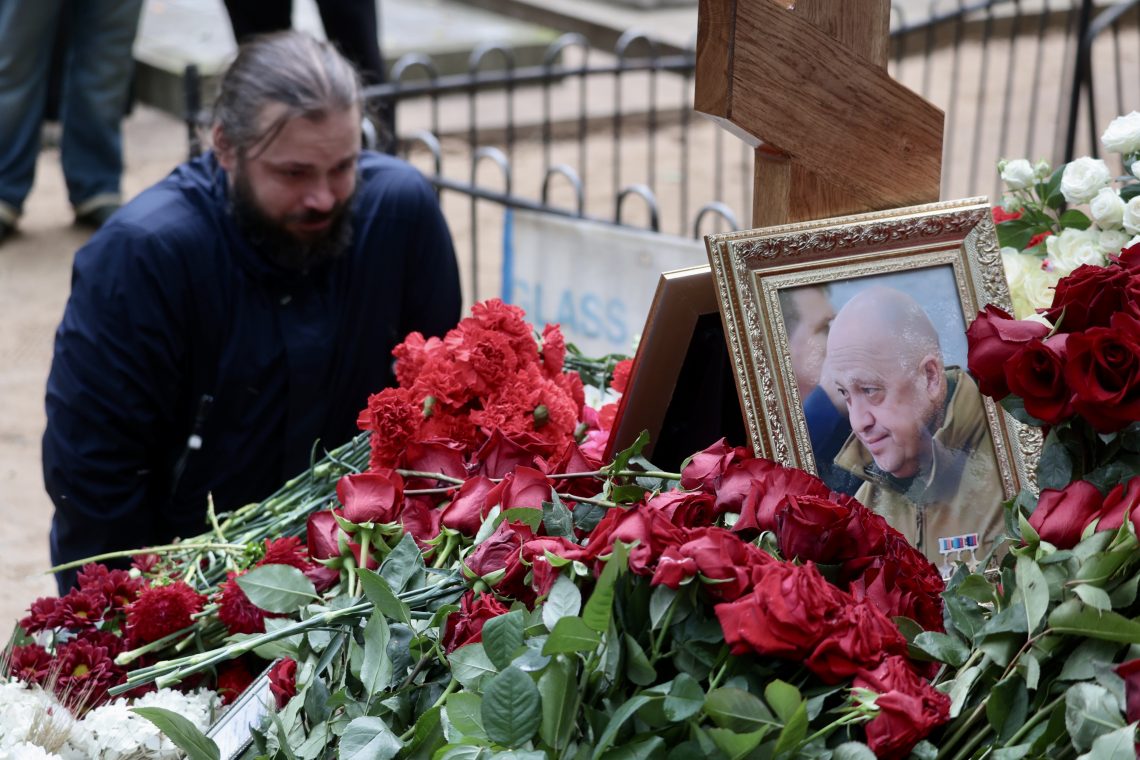
Geopolitical Intelligence Services AG
The rise and fall of mercenary leader Yevgeny Prigozhin offers intriguing insight into the dangerous state of Vladimir Putin’s Russia.
 A man sits near the grave of Yevgeny Prigozhin, who was killed in a plane crash, at Porokhovskoye Cemetery in St. Petersburg, Russia, on August 30, 2023. © Getty Images
A man sits near the grave of Yevgeny Prigozhin, who was killed in a plane crash, at Porokhovskoye Cemetery in St. Petersburg, Russia, on August 30, 2023. © Getty Images
- The war in Ukraine threatens to undermine the Kremlin’s authority and control
- Prigozhin’s brand of privatized violence may spread in Russia if Ukraine prevails
- Should Russia win, the armed forces will be rebuilt and repression will flourish
Russia’s latest invasion of Ukraine brought to the fore one of the murkiest features of its military forces, that of the Private Military Company (PMC) Wagner and its firebrand leader, Yevgeny Prigozhin. The mutiny that Prigozhin instigated on June 28 was a truly unique event. It was striking that the leader of a mercenary outfit may have come close to seizing the Kremlin.
The story offers two intriguing facts. One is that the Wagner forces succeeded in swiftly seizing the headquarters of Russia’s Southern Military District in Rostov-on-Don, which coordinates the war against Ukraine, and the other is they managed to advance close to Moscow without encountering any opposition. The enigma lies in how these two facts may be explained.
One possibility is that Prigozhin had support from inside the military establishment, where many commanders have been frustrated by how poorly the war has been prosecuted. That suggests that another military insurrection could be in the cards. Another possibility is that the absence of a response was due to a paralysis of power. When Russian President Vladimir Putin was too terrified to issue orders, and senior officials were scrambling their private jets to escape, senior military commanders may have opted to stand by. This indicates that the center of power may be about to implode.
No matter what the real story was, a third fact is that less than two months later, Prigozhin was dead. He met his end on August 23, 2023, when his private plane crashed en route from Moscow to St. Petersburg. All 10 on board perished, including three crew members and Prigozhin’s right-hand man, Dmitry Utkin. DNA tests allegedly showed that the human remains matched the list of passengers. That was the formal end of the Wagner saga.
The fallout of Azerbaijan’s victory over Armenia
Russian arms exports in a tailspin
The problem-ridden development of a Russia-Iran axis
The rise and fall of Prigozhin and his PMC speaks volumes about the state of the Russian Armed Forces, the nature of the political system that Mr. Putin has created to cement his power and the culture of extreme violence that permeates not only the armed forces but Russian society.
The use of private military contractors is not specific to Russia. During its wars in Iraq and Afghanistan, the United States made use of the Blackwater company (rebranded as Academi), and other countries have similar arrangements. What is specific about the case of the Russian Wagner group is its place and role within the hierarchy of power.
One of the peculiarities is that private military companies are formally illegal in Russia. Given the general Russian contempt for the rule of law, this may seem an irrelevant observation, but it has played an important role in how Wagner developed. Having no legal rights, Prigozhin was dependent on playing the games of the Russian underworld. Up until his death, he showed excellent skills in doing so.
The Wagner group was created under the aegis of the GRU, the Russian military intelligence service. It was headquartered at a well-known GRU base. During combat, it had access to GRU airlift, and its wounded were treated in GRU hospitals. That tells us that the GRU viewed Wagner as a valuable addition to its already considerable capabilities.
The first signs of Wagner mercenaries in action appeared during the war in Syria. There, they proved useful, undertaking dirty operations that were beyond the pale even for the otherwise brutal official Russian army. Following their appearance in that war, Wagner mercenaries would appear both in Ukraine, where they won a reputation as a more effective fighting force than the regular army, and in Africa, where unsavory regimes have found them helpful as protection.
These developments provide valuable insights into the state of the Russian Armed Forces. That a mercenary unit like Wagner was tasked with frontline duties in Ukraine should not be taken as a sign that it constitutes a professional fighting force. The only case where it had been in combat with a modern professional military was in 2018 in Syria, when around 500 pro-Syrian government troops and Russian mercenaries got into a nearly four-hour-long firefight with about 40 members of the U.S. Delta Force and Rangers at a small outpost near the city of Deir ez-Zor. That encounter ended with a spectacular defeat for the attackers who suffered massive casualties – 200 to 300 dead – while none of the Americans were harmed. The incident proved that a band of thugs parading as a military force is easy prey for a truly professional combat unit.
Wagner personnel winning a reputation as better soldiers than the regular Russian armed divisions, outperforming even the elite airborne forces, sends an important message about how a Russian army would perform in combat against NATO. This insight has most probably been taken to heart by the Russian military command, if not by the Kremlin itself.
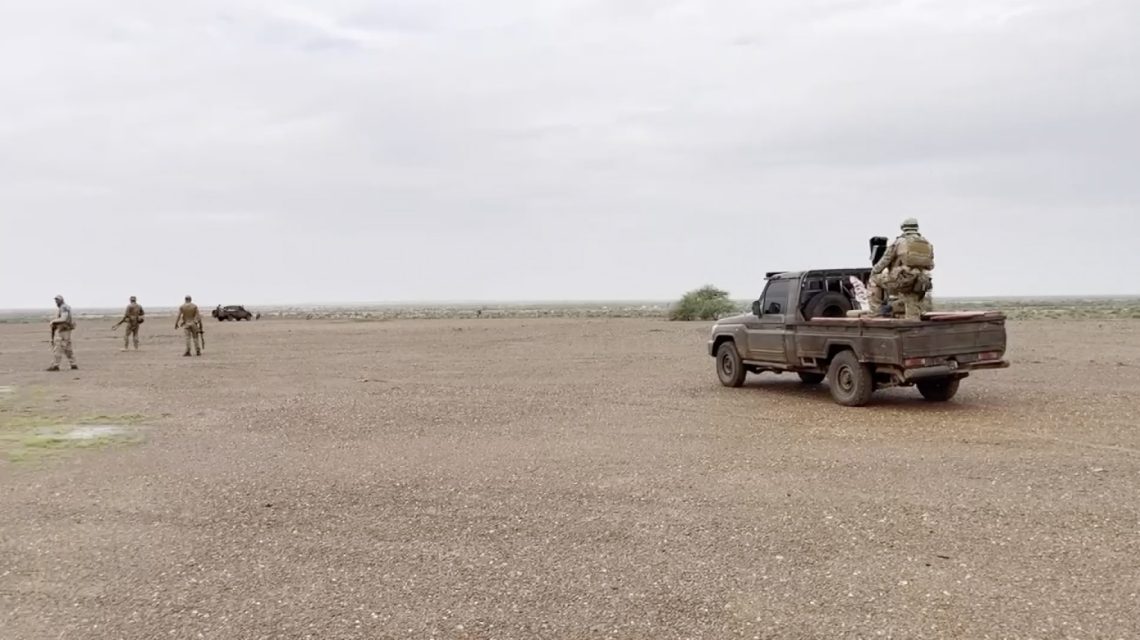 A screen grab captured from a video shows Russian Wagner mercenaries in an unspecified desert area of Africa on August 21, 2023. The image comes two days before the private military company’s leader, Yevgeny Prigozhin, was killed in a plane crash between Moscow and St. Petersburg in Russia. He bragged that Wagner had made Russia “even greater” on all continents. © Getty Images
A screen grab captured from a video shows Russian Wagner mercenaries in an unspecified desert area of Africa on August 21, 2023. The image comes two days before the private military company’s leader, Yevgeny Prigozhin, was killed in a plane crash between Moscow and St. Petersburg in Russia. He bragged that Wagner had made Russia “even greater” on all continents. © Getty Images
Another important message from the Wagner saga concerns Prigozhin’s personal career. Having started in petty crime, he moved into catering and ended up as the leader of a mercenary force that won global notoriety. His catering skills won him a reputation as “Putin’s chef” (and an even more derogatory nickname of “garcon” among envious oligarchs), meaning he had gained the trust and friendship of the country’s most powerful man. His violent end showed that there were limits to that friendship.
As in any good mafia story, much, if not all, had to do with money and turf battles. Although Prigozhin had accumulated a massive fortune, he likely had legal title only to the catering business. The message is that a person in Russia does not get wealthy without protection, and protection comes at a price that is measured in blind loyalty.
In mafia jargon, by virtue of his friendship with President Putin, Prigozhin should have been untouchable, and so it was – for a time. It is important to note that in all the videos he published in the weeks leading up to his mutiny, hurling gross insults against Russian Defense Minister Sergei Shoigu and General Valery Gerasimov, he was scrupulous in never mentioning Mr. Putin.
The central question that permeates all speculation about what really happened with the mutiny and its fallout concerns how it could be that Prigozhin overstepped so catastrophically that he had to be eliminated (unless his death was an accident.)
When Wagner made its move into Africa, where it would be making lots of blood money, it expanded into novel territory. By far, the most credible explanation of the mutiny is that the GRU resented how Prigozhin was enriching himself. He was their creation, and perhaps he was not showing gratitude. A decision was made to muscle him out so that the GRU could rake in the money for itself.
As the Kremlin loses both authority and control, a variety of players will resort to violence to protect their turfs.
It was when Prigozhin learned that his saga might be coming to an end that his increasingly grating public videos started appearing. His rambling complaints about how the military leadership was not giving him enough ammunition were a mere cover. When the regular military took over the Wagner forces, it transpired that they had plenty of ammunition. The challenge for Prigozhin was to get the GRU to withdraw from his turf, and he likely calculated that Mr. Putin would cover his back.
As it turned out, that was a grave miscalculation. In relations with President Putin, money matters far less than loyalty. Prigozhin made the fatal mistake of publicly attacking two senior officials who had demonstrated boundless devotion to the president. With his subsequent mutiny, he had to capture the Kremlin or perish.
The Wagner saga provides two important insights into what will happen next. The first is that agreements with Mr. Putin are of little to no value. The essence of this insight has been expressed by Ukrainian Foreign Minister Dmytro Kuleba, who suggests there is no reason to believe President Putin will behave differently in negotiations about the war against Ukraine: “As for the calls for negotiations with Putin, anyone who asks about this should ask not us, but Prigozhin. He had a conflict with Putin, he held successful negotiations with Putin, ended the conflict, agreed on security guarantees and then Putin killed him.”
The second insight concerns the premium that is placed on loyalty and the retribution that will follow any form of perceived insubordination. At the time of the rebellion, Mr. Putin vowed that the response from the state would be harsh. A period of total confusion followed when speculation about the fate of Prigozhin was rife, that the two may even have met in person and that a continued existence for Wagner in Belarus, under the protection of President Alexander Lukashenko, was being touted, spooking fears in Poland and Lithuania.
The pattern of privatized violence that Yevgeny Prigozhin set will outlast him to the great detriment of the Russian state.
It was a ruse, of course, designed to sow confusion and create false security while preparations were being made for the end game. Also, it was a classic application of the maxim that you must keep your friends close but your enemies closer. Originally formulated by the great Chinese strategist Sun Tzu around 500 B.C., over the centuries it has been repeated by sources that range from Niccolo Machiavelli in “The Prince” to Mario Puzo in his novels about the Mafia family Corleone. It is probably the latter that best explains the true nature of the Russian mafia state, with Mr. Putin acting as capo di tutti capi (boss of bosses).
When the time came for the curtain call, it was both swift and decisive. Once the leaders of the Wagner group had been eliminated, the hammer of retribution was also brought down on their underlings. Graves of fallen Wagner mercenaries were bulldozed and covered with concrete. Wounded Wagner fighters were thrown out of hospitals with their treatments unfinished, their payments for medical care were terminated and payments and benefits to their families stopped.
The message was loud and clear. You simply do not challenge the man at the top. The sledgehammer that Prigozhin had made into his trademark came down on his own head. He had banked on being protected by his friendship with Mr. Putin, and he got it terribly wrong.
What will follow next depends on the outcome of the war in Ukraine. In the less likely event that Russia manages to get out with some form of deal it can tout as a win, then the status quo ante may be restored. The GRU will take over the African business and relations between the various factions in the military and security spheres will be brought back to the normal state of balance by the master of the Kremlin. The armed forces will be rebuilt, and the culture of extreme violence that the war against Ukraine has enhanced will both demand and permit draconian repression to maintain order.
In the more likely event that Russia cannot sustain its war, the roof may be expected to cave in. The Kremlin will be faced with a situation resembling the end of World War I, with armed and embittered soldiers returning from the front. The incidence of gun violence and serious crime has already spiked in regions bordering Ukraine, as convicts who were released from prison to serve in Ukraine have returned home even more brutalized and vengeful. It can and will get much worse, with rogue militias terrorizing the citizenry.
As the Kremlin loses both authority and control, a variety of players will resort to violence to protect their turfs. It will range from resource-rich corporations that set up private military forces to protect their assets and local officials making deals with local military to provide local security, to senior military commanders transforming into warlords who embark on new adventures to take Moscow and other cities. In this sense, the pattern of privatized violence that Prigozhin set will outlast him to the great detriment of the Russian state.
For industry-specific scenarios and bespoke geopolitical intelligence, contact us and we will provide you with more information about our advisory services.

Receive insights from our experts every week in your inbox.

Published on Feb 08, 2024 02:14 PM IST
Russian President Vladimir Putin said that Moscow is working on freeing hostages held in captivity by Hamas in Gaza. Putin said this after meeting Russia’s chief rabbi, Berel Lazar, and the head of the Federation of Jewish Communities, Alexander Boroda, in the Kremlin. Putin claimed that Moscow had achieved “specific results” in its diplomatic efforts using its contacts within Hamas’s political wing. Watch this video to know more. #putin #hamas #hostages #moscow #kremlin #vladimirputin #russia #hostagedeal #jews #jewishcommunity #rabbi #berellazar #alexanderboroda #hamasleadership #israel #us #hostagerelease #palestine #twostatesolution #antonyblinken #mahmoudabbas Hindustan Times Videos brings all the News for the Global Indian under one umbrella. We break down news from across the globe from the unique lens of a Rising India. Tune in for Explainers, Opinions, Analysis and a 360 degree view of big events in India and the World which impact your present and future. Follow the Hindustan Times Channel on WhatsApp for News Alerts, Top Stories and Editor picks. Join Us Today – https://www.bit.ly/3PQ4kSv Subscribe to the Hindustan Times YT channel and press the bell icon to get notified when we go live. Visit our website https://www.hindustantimes.com/ Follow us on Twitter https://twitter.com/htTweets Follow us on Facebook https://www.facebook.com/hindustantimes
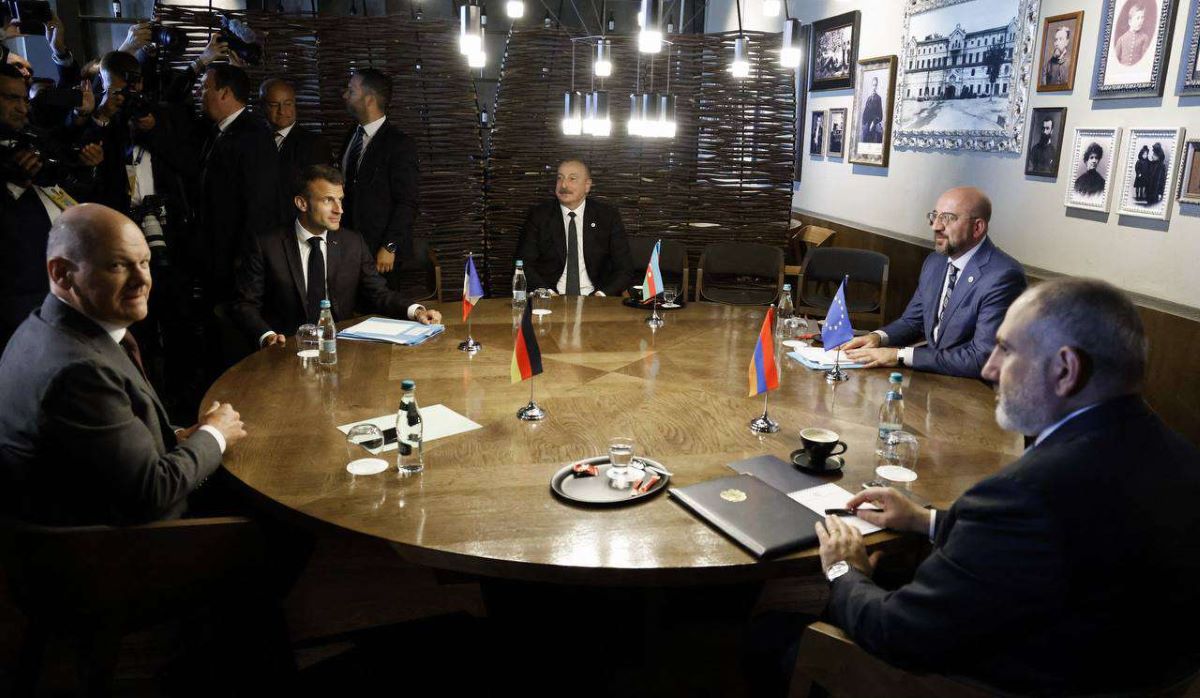
The Western stance
The Karabakh conflict risks falling into oblivion, and this, at least, does not contradict the interests of the West in the South Caucasus region. Taking over the role of the main moderator of negotiations between Armenia and Azerbaijan, Brussels aimed to construct the entire dialogue based primarily on the principle of the countries’ territorial integrity. This meant that official Yerevan had to recognize Nagorno-Karabakh as part of Azerbaijan, which, indeed occurred.
However, current events are unfolding differently from the anticipated scenario. Azerbaijani President Ilham Aliyev has long been unwilling to resume negotiations on Western platforms. Meanwhile, the Armenian-Azerbaijani conflict remains unresolved. With Baku’s reluctance to engage in talks, there is a significant risk of renewed hostilities, despite warnings from Western partners about their unacceptable nature.
Missed opportunity
October 5, 2023, could have marked a significant moment in the history of Armenia-Azerbaijan relations. A five-party meeting was scheduled in Granada, Spain, facilitated by European Council President Charles Michel. Alongside the leaders of Armenia and Azerbaijan, German Chancellor Olaf Scholz and French President Emmanuel Macron were slated to attend. While the Armenian Prime Minister arrived in Spain, Ilham Aliyev declined to participate, citing France’s perceived bias. He also proposed inviting the president of Turkey, a suggestion opposed by Paris and Berlin.
This refusal sparked a period of turmoil in the negotiation process between Yerevan and Baku. However, this was just one aspect of the issue. In Granada, the leaders of the two conflict-ridden nations in the South Caucasus were meant to sign a declaration acknowledging mutual territorial integrity. Yet, only Pashinyan’s signature appeared on the document.
Consequently, Armenia fulfilled the expectations of its Western partners by recognizing Nagorno-Karabakh as part of Azerbaijan, without receiving anything in return. Aliyev not only refrained from signing the document acknowledging Armenia’s borders but also made statements afterward that could only be interpreted as territorial claims.
Success for the West and a setback for Russia
The outcomes of the 44-day Karabakh war in 2020 appeared to bolster Russia’s influence in the South Caucasus region. Through Moscow’s mediation, a trilateral ceasefire declaration was inked, effectively designating Russia as the guarantor for its enforcement. Just days following the cessation of hostilities, the Russian peacekeeping force was deployed to the territory of the unrecognized republic.
Following the war, the leaders of Armenia and Azerbaijan made multiple visits to the Kremlin and even endorsed two additional agreements. It appeared that Moscow had notably augmented its sway in the region and had effectively ensnared Yerevan. However, everything shifted with the onset of the Ukrainian crisis.
A few months into the Ukrainian conflict, the European Union visibly heightened its engagement in the Karabakh issue. While Moscow grappled with military matters, Brussels primed itself to assume the lead mediator role between Yerevan and Baku. And they succeeded in their endeavor.
In 2022-2023, the leaders of Armenia and Azerbaijan primarily convened in Brussels and other European capitals for their meetings. Consequently, the war of 2020, which was supposed to strengthen Russia’s influence, initiated another process: the Kremlin’s retreat from the region.
Demand for Armenia to “lower the bar”
“Today the international community is telling us: lower your bar a little on the status of Nagorno-Karabakh, and you will ensure greater international consolidation around Armenia and Artsakh. Otherwise, says the international community, please don’t count on us – not because we don’t want to help you, but because we can’t help you”.
This statement marked a turning point for Armenian society, signaling a departure from the previous pursuit of international recognition for Nagorno-Karabakh, as was the case before the 2020 war. By then, negotiations had begun to shift towards Western involvement, with the prime minister explicitly referring to European partners when mentioning the “international community.”
It’s evident now that Armenia has not just lowered its ambitions but completely relinquished its stance on the Nagorno-Karabakh issue. However, it never gained consolidation around itself.
Why did the West prioritize the principle of territorial integrity over the right to self-determination in the context of the Karabakh conflict? Before the 2020 war, Azerbaijan had offered Karabakh significant autonomy within its borders. However, post-war, Baku changed its stance, refusing to discuss any status for the region. Concurrently, the West became highly invested in a definitive resolution to the Karabakh issue, with emerging realities suggesting that such a resolution would hinge on upholding the principle of territorial integrity.
The eventual resolution of the Karabakh conflict rendered the presence of Russian peacekeepers in the region obsolete, a goal pursued by Brussels and Washington from the outset. This outcome materialized as anticipated.
While the peacekeeping contingent remains in Karabakh, the withdrawal of Russian forces from the region seems imminent following the exodus of nearly the entire Armenian population. The peacekeeping mission’s mandate expires in 2025, and Azerbaijan appears unwilling to extend it. And there are all formal grounds for this.
Has the confrontation ended?
Once Azerbaijan secured verbal and written acknowledgment from Armenia, recognizing Nagorno-Karabakh as part of Azerbaijan, Baku lost interest in Western platforms. Ilham Aliyev has boycotted several meetings and consistently declined invitations to attend events in Brussels or Washington. Instead, the Azerbaijani leader extends invitations to his Armenian counterpart to meet in Russia.
The primary focus of negotiations has shifted away from Nagorno-Karabakh to the delimitation and demarcation of the border between Armenia and Azerbaijan, along with the so-called “Zangezur corridor” issue.
“Zangezur corridor” refers to a route that would link Azerbaijan with its exclave, Nakhichevan. The Azerbaijani authorities insist that the road should not be under Armenian control.
Baku is well aware that it stands to gain the most from negotiations on these matters if they occur in Moscow. Russia aligns with Azerbaijan on these issues, driven by its own strategic interests. Specifically, Russia seeks to assert control over the road passing through Armenian territory.
“Our Western counterparts prefer a peace treaty between Azerbaijan and Armenia to be signed exclusively on their soil. This is a fact. Also factual is Azerbaijan’s readiness to sign it on Russian territory, where the initial efforts to end the conflict and establish a comprehensive system of interaction to address all issues began. As for Yerevan’s readiness for this, I am uncertain, although signals in that regard have been sent to the Armenian capital for some time.”
This statement by Russian Foreign Minister Sergey Lavrov accurately portrays not only the Kremlin’s stance on the negotiations but also Armenian-Azerbaijani relations.
Paradoxically, Yerevan is actively seeking to avoid and clearly wary of activating its strategic ally. It is becoming increasingly evident this could result in significant losses.
On the contrary, Armenian authorities anticipate increasing involvement from the West and are making progress in this regard. Specifically, they have succeeded in boosting the number of civilian observers from the EU mission tasked with patrolling the Armenian-Azerbaijani border.
The primary concern now revolves around whether Baku will initiate military action. Many in Armenia are convinced that it’s only a matter of time, and under favorable weather conditions, the border will become turbulent once again.
However, whether events will unfold according to this scenario will largely hinge on the stance of the European Union and the United States. Will Brussels and Washington be capable and inclined to rein in Baku’s ambitions? This question remains unanswered at the moment.
Follow us – Twitter | Facebook | Instagram
The Western stance

Rapid geopolitical change is curtailing Russian power in the South Caucasus, boosting the influence of Middle Eastern countries and bookending the region’s “post-Soviet” history.
The South Caucasus is undergoing a geopolitical transformation. The war in Ukraine and the effective resolution of the Nagorno-Karabakh conflict between Armenia and Azerbaijan mean that the region is entering a new age. Armenia, Azerbaijan, and Georgia have gradually become more confident on the world stage, with each trying to limit its dependence on Russia by diversifying its foreign policy.
Georgia has boosted relations with the European Union, China, and—to some extent—the United States, while Azerbaijan has sought closer ties with Turkey, Israel, Central Asia, and a number of European countries. Having gone through the traumatic loss of Nagorno-Karabakh, Armenia has pushed for closer engagement with the EU, rapprochement with Turkey, and even military links with India and some European states.
Instead of an arena for competition between Russia and the West, the South Caucasus has turned into a highly congested geopolitical space, with up to six major powers vying for influence. We are not, however, just witnessing the end of the post-Soviet period. We are witnessing the end of exclusive Russian influence in the South Caucasus, which has been the status quo for almost two hundred years.
The decline of Russian power has led to the reemergence of close links between the South Caucasus and the broader Middle East. Indeed, geography favors such a connection. Russia lies across the formidable Caucasus mountains, and Middle Eastern states have long regarded the South Caucasus as a natural continuation of their own territories.
The deepening ties are visible in growing trade, investment, energy infrastructure, and railways that link the South Caucasus to two large neighboring powers: Turkey and Iran.
Turkey is a key ally of Azerbaijan, and also enjoys close links with Georgia, while Armenia has Iran’s backing. In particular, Turkey has been pushing for the development of east-west connectivity that cuts through the traditional Russia-sponsored north-south infrastructure. The successful completion of the Baku-Tbilisi-Kars railway is one example; another is the push by Baku and Ankara to open a new route via Armenia’s southernmost province of Syunik.
Iran, too, has scored significant victories. In October, it inked a deal with Baku on a new transit corridor linking Azerbaijan to its exclave of Nakhchivan via Iranian territory. Tehran has also advanced work on the International North-South Transport Corridor, which runs from southern Iran to Russia via Azerbaijan and the Caspian Sea. Other initiatives involve the development of roads through Armenia, which could provide solid links between Iran and Georgia’s Black Sea ports of Poti and Batumi.
Energy infrastructure in the South Caucasus, too, is increasingly tied to the Middle East. Azerbaijan has become one of Turkey’s major gas suppliers, covering about 16 percent of the country’s needs in 2022, while Iran and Armenia have agreed to extend their gas trade agreement through 2030.
The civil war in Syria showed how political and military developments in the Middle East impact the South Caucasus. For instance, residents of the Pankisi Gorge in Georgia volunteered to fight with radical Islamist groups in Syria and Iraq, sparking fears of terrorism spreading. Syria is also one of few countries that has recognized the independence of Georgia’s separatist regions of Abkhazia and South Ossetia. And the Second Nagorno-Karabakh War of 2020 allegedly saw Syrian soldiers fighting for Azerbaijan.
Even beyond security, Armenia and Georgia have built robust relations with other prominent Middle Eastern countries. Saudi Arabia recently agreed to establish diplomatic relations with Armenia, which has also expanded its ties with other Gulf states. Similar trends are visible in Georgia’s relations with nations like Saudi Arabia, Iraq, and Jordan.
Other actors like Israel are also playing an increasingly active role. Israel’s relations with Azerbaijan are especially noteworthy, with the two states enjoying close military ties. Azerbaijan used high-tech Israeli weaponry to devastating effect in the Second Nagorno-Karabakh War, and, more recently, in September 2023, when it reclaimed full control over the disputed region. Azerbaijan is also a major supplier of oil to Israel, meeting as much as 40 percent of the country’s demand.
Azerbaijan’s links with the Middle East mean that flare-ups between Israel and Iran could have local consequences. Iran has expressed concern about Israel allegedly using Azerbaijan for espionage activities, and Azerbaijan was one of just a few Muslim countries not to condemn Israel’s military operation in Gaza, sparking anger in Tehran.
With an end to Russian dominance in the South Caucasus, it’s clear that the region is growing closer to the Middle East. Historically speaking, this is actually a return to normal practice, with Middle Eastern powers traditionally the most influential in the region. For Iran and Turkey, Russian hegemony was always an aberration.
The process could yield benefits for the West. After all, shifting tectonic plates create opportunities for multiple actors to project power. But the EU and United States are limited by geographical distance, and the absence of significant economic levers. Turkey and Iran are both nearby, and eager to accrue more influence in the South Caucasus.
— Michael Novakhov (@mikenov) February 8, 2024
Bzhania Meets Russian Foreign Minister Lavrov in Moscow https://t.co/jmPlyOtMZb via @CivilGe
— Michael Novakhov (@mikenov) February 8, 2024

Azerbaijan’s snap presidential election has exacerbated an authoritarian conundrum for the incumbent, Ilham Aliyev. In moving to cement his legacy at home as Azerbaijan’s unifier and builder of a modern state, he has inflicted additional damage to his country’s image abroad, as reflected by a deepening feud with the Council of Europe.
Aliyev cruised to victory in a vote February 7 that watchdog groups said was never genuinely competitive. Local observers believe the presidential election was more about Aliyev’s desire to bolster his regime’s legitimacy and solidify his place in the history books than about obtaining a mandate for the future.
Aliyev did not make a secret of his motivation for moving the presidential election forward by a year: he wanted to take advantage of the popular euphoria generated by Azerbaijan’s Reconquista of Nagorno-Karabakh, which Azerbaijan’s military completed in 2023. In an interview with pro-government television channels, Aliyev linked the early election to his “epochal” victory in the second Karabakh war, which he cast as unprecedented in Azerbaijan’s history.
Aliyev appeared to secure his domestic political objective with a convincing margin of victory in the election. The central question moving forward is; what will be the final cost of victory, in terms of Azerbaijan’s international reputation?
The run-up to the presidential vote was marked by what rights activists described as an unprecedented crackdown on independent media and free speech. The chief target of repression was a media outlet, Abzasmedia, which saw many top editors detained. No longer able to work inside Azerbaijan, the outlet shifted operations to Berlin.
“For Aliyev, following the Karabakh victory, securing a win in the presidential election seemed like the final piece in his quest for absolute control over Azerbaijan,” said Leyla Mustafayeva, acting head of Abzasmedia. “His nationalist rhetoric, which had rallied the nation since the 2020 Karabakh victory, was already losing its immediate effect and power, particularly after Armenians were expelled from Karabakh [last year].”
To ensure his desired outcome in the election, Aliyev needed to “shield himself from scrutiny,” Mustafayeva said. Accordingly, the government took action to silence all critical voices inside the country. Abzas’ astute use of social media, including TikTok, made it a particular target of government ire, said Cavid Aga, an Azerbaijani writer and chronicler of social trends.
The crackdown extended beyond independent media that specialized in exposing instances of corruption and other forms of malfeasance. Activists and politicians not in lock step with the government’s Karabakh policies, including Gubad Ibadoglu, were also subjected to harassment and repression in recent months.
“It was a time to clean house,” said opposition journalist Arzu Geybulla, referring to the pre-election crackdown. “You cannot have snap elections in the country when you are still having journalists bravely reporting on corruption.”
Opposition activist Afgan Mukhtarli, a former RFERL reporter who spent three years in prison after mysteriously disappearing from a Tbilisi street and showing up in Azerbaijan the next day, maintained the crackdown has backfired on Aliyev.
“The relentless media crackdown, especially against Abzasmedia, has exposed the regime’s true nature to European institutions that had previously overlooked Aliyev’s authoritarian excesses,” Mukhtarli said. He added that one of Aliyev’s top priorities in the post-election period is likely to be damage control vis-à-vis the EU.
“He will strive to have the outcomes of his presidency recognized,” Mukhtarli predicted. “He will be compelled to make certain concessions and will go to great lengths to return to the Council of Europe.”
In the days leading up to the election, Aliyev showed no signs of backing down in an escalating dispute within the Council of Europe over Baku’s rights record. On February 2, Aliyev threatened to withdraw from several European institutions, including the Council of Europe and the European Court of Human Rights after the CoE’s Parliamentary Assembly indicated it would not recognize the mandates of Azerbaijan’s delegation.
Influential figures within the Council of Europe appear more tired of, than intimidated by the combative rhetoric coming from Baku. Frank Schwabe, a German MP who leads CoE’s socialists, democrats and greens group, characterized Azerbaijan as a classic “dictatorship,” featuring “great repression internally” while being guided by desire to “present a good image to the outside world.”
Schwabe’s uncompromising portrayal of Azerbaijan’s political practices suggests that Aliyev has a challenge on his hands if he wants to mend fences with the Council of Europe.
“We must describe the real situation and not remain silent in the face of the dramatic deterioration in the human rights situation,” Schwabe said in a statement given to Eurasianet, referring to the CoE’s dispute with Baku. “The Parliamentary Assembly of the Council of Europe has made it clear that it does not want to be fooled any further. Azerbaijan is committed to transparency. Being able to see and say what is happening is the task of the Council of Europe. Azerbaijan must make this possible. No ifs, ands or buts.”

